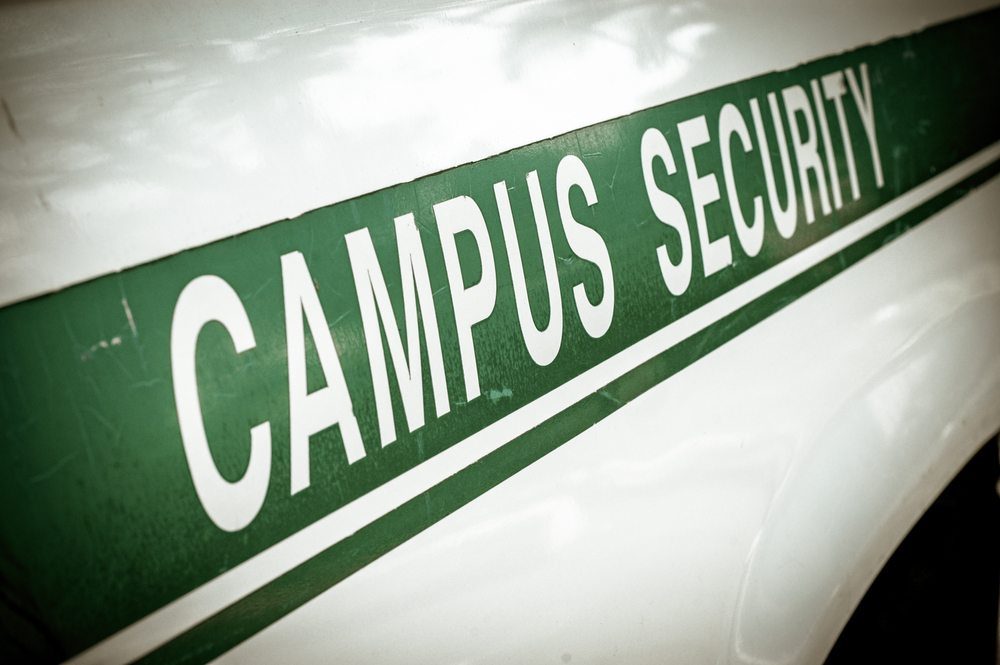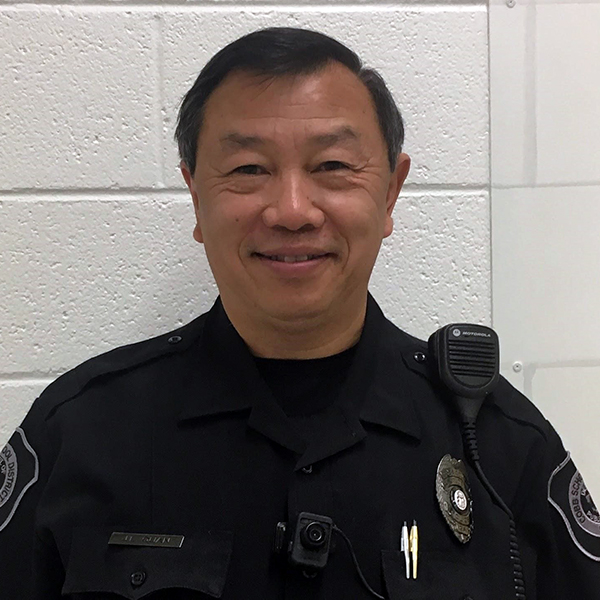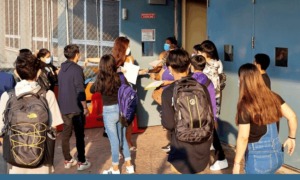
Mr Doomits/Shutterstock
.
ATLANTA — “Stay behind this line,” said an elementary school teacher preparing students for a school drill. “I’ll grab some dark paper to cover the window, and don’t forget students, absolutely no talking.”
After a few minutes of silence the classroom door handle violently jiggles and an aggressive banging can be heard. The students cringe until the banging finally stops. Silence and dread fill the room for what feels like hours until finally the teacher directs the students back to their seats for a spelling test.
“Just like the inclement weather or hurricane drills, now we have a code red or active shooter drills,” said Cobb County (Georgia) School Resource Officer Jerry Quan. He’s a seasoned Cobb County Police veteran who retired from the department in January after 29 years.

Jerry Quan
Do school resource officers think teachers should be armed? What do they believe needs to be done to keep schools safe?
Quan, who works at Hightower Trail Middle School in Marietta, Georgia, an Atlanta suburb, supports arming teachers where SRO funding is not available.
“If you can imagine some small school district in South Georgia where there’s just several schools and they don’t have a lot of money, so how are they going to be able to afford a sworn police officer at each of their schools?” he asked. “They may have to rely on teacher Smith who does science and also coach Smith.”
According to Everytown for Gun Safety, a nonprofit that advocates for gun control, there have been 38 school shootings this year as of April 22. Of those, 19 resulted in injury or death. Many parents and students are seeking federal government intervention to decrease school violence. President Donald Trump mentioned the idea of arming teachers on social media, according to a February article from CNN. His endorsement came days after a meeting with students and their parents from Marjory Stoneman Douglas High School, site of a February shooting, to address safety concerns.
Opposing views
Thomas Trawick, police chief of safety and security for schools in Clayton County Georgia, questions the effectiveness of arming teachers: “Teachers ought to teach and police officers ought to police and be there for the safety applications of the school.”
He believes SROs play an essential role in decreasing violence in schools. “If you want to mitigate crime then you have to establish relationships, and that means we have to be the R in School Resource Officers,” he said. Trawick was an SRO for four years in Chatham County, Georgia.
One change from the heightened awareness of potential school threats is more school suspensions and arrests. “[Students] are being charged with making terroristic threats because they’re joking with their friend about committing a violent act,” Quan said.
Steven Teske, chief judge of Clayton County, Georgia, Juvenile Court and chair of Georgia’s Juvenile Detention Alternative Initiative Steering Committee, believes excessive suspensions causes students to fear being punished for any action. “The zero-tolerance policy has contributed to some extent to exacerbating children’s psyche to cause them to go overboard,” he said.
Teske, who has helped develop school-justice partnerships in 39 states, believes there are better ways to handle student threats. “We’re doing things that are more productive than arresting them in order to improve their behavior,” he said.
His 10 years of experience as a peace officer is one of the many reasons he doesn’t support arming teachers. “There’s more to arming a person than just putting them through training,” he said. “When that moment comes and you have to pull that gun out and you’re forced to pull the trigger, your stress level goes up so much that your score that you get on a firing range to qualify is much lower.”
Teske cautions lawmakers, saying, “Be careful before we start passing legislation like that or any legislation because more people could get harmed.”































